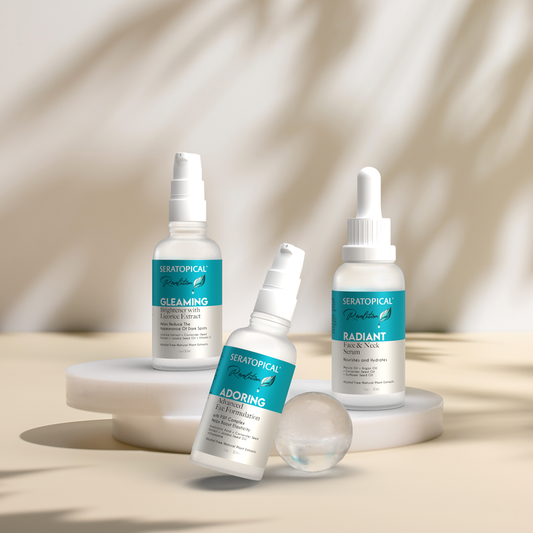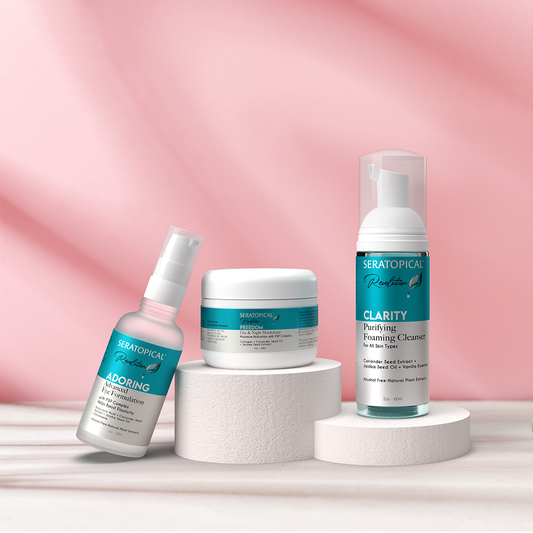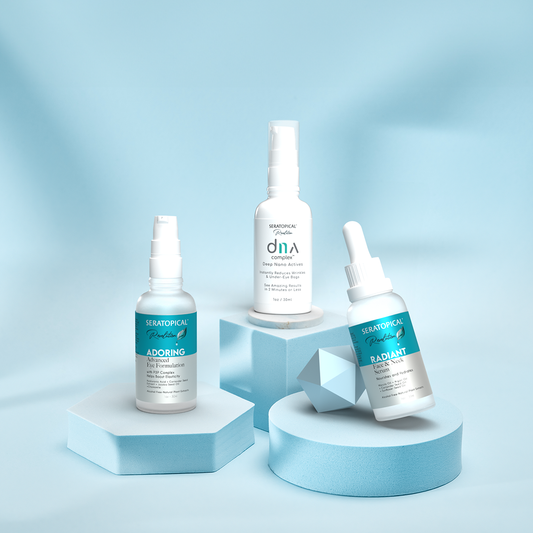Caffeine is a much-loved go-to, especially in the form of coffee or cola soft drinks. Many of us wake up in the morning to the smell of coffee being brewed and may start our day with a morning coffee, followed by a cup of coffee or two during our working day. Coffee for some is the fix that gets them through each day, or what they look forward to after a hearty meal. So, what is caffeine? Does it give us energy? And could it have health benefits or be detrimental for our health? Read on to find out a little more about caffeine, energy and so much more.
What is Caffeine?
Caffeine is a naturally occurring central nervous system stimulant that belongs to a class of compounds known as xanthines. It is one of the most widely consumed psychoactive substances in the world and is commonly found in coffee, tea, soft drinks, and various energy drinks. Caffeine's stimulating effects are well-known; it can increase alertness, reduce fatigue, and enhance cognitive performance. When consumed, caffeine works by blocking the action of a neurotransmitter called adenosine, which is responsible for promoting relaxation and sleepiness. As a result, it leads to increased wakefulness and a heightened state of awareness.
While moderate caffeine consumption can have several benefits, excessive intake can lead to side effects, including restlessness, insomnia, and increased heart rate. It's important to consume caffeine in moderation to enjoy its positive effects without the drawbacks.
Sources of Caffeine
Caffeine can be found in a variety of natural and manufactured sources such as coffee and tea. Additionally, caffeine is often added to soft drinks, energy drinks, and some over-the-counter medications like pain relievers. These manufactured sources can provide a quick caffeine boost but should be consumed in moderation, as excessive caffeine intake can lead to adverse health effects.
Tea
A cup of tea may have calming and soothing effects on the body. Some believe that a sweet cup of tea may calm the nerves, however, tea may also contain caffeine. Contrary to popular belief, green tea may also contain traces of caffeine. If you are trying to reduce your caffeine dependency, perhaps try replacing a normal cup of tea with an herbal tea or green tea.
Coffee
Ah, coffee. A favorite for many! Whether it is instant coffee or a delicious pot of brewed coffee beans, a large portion of the world's population may rely on anything from one to three (or more) cups of coffee per day.
Energy Drinks
One caffeinated drink that may often be consumed is energy drinks. An energy drink may contain a fairly high amount of caffeine. Aside from caffeine, energy drinks may also contain sugar, and often potentially sugar in high quantities—as well as other substances such as taurine.
Cola Soft Drinks
Drinking a fizzy soda is satisfying for some, but be aware that soft drinks may up your caffeine intake. In addition, these caffeinated beverages contain not only caffeine, but also sugar and should therefore be consumed in smaller amounts.
Supplements
Many people consume caffeine on a daily basis, and while caffeine may be found in many products such as caffeinated beverages, adding more caffeine to the diet may be done through supplementation. SeraLabs Nutri-Strips energY provides a great tasting, sugar free, zero calorie, convenient alternative to coffee, tea, and sugary energy drinks and contains caffeine, Vitamin B6 and Vitamin B12. Note: Pregnant women should always consult with a doctor or health professional before consuming supplements.
How Much Caffeine is in a Cup of Coffee
The caffeine content in a cup of coffee can vary widely depending on factors such as the type of coffee bean, the brewing method, and the serving size. On average, an 8-ounce (240 ml) cup of brewed coffee contains approximately 95 milligrams of caffeine, but this can range from 70 to 140 milligrams or more. Espresso, a concentrated coffee preparation method, typically contains more caffeine, with a single 1-ounce (30 ml) shot containing around 63 milligrams. It's essential to be aware of these variations when considering your caffeine intake, especially if you're sensitive to caffeine or trying to limit your consumption.
Additionally, some specialty coffee drinks, like lattes or cappuccinos, contain less caffeine than a straight espresso because they are diluted with milk. It's also worth noting that some coffee blends and brands may have higher or lower caffeine levels, so reading product labels or inquiring with the coffee shop can provide more precise information on caffeine content.
Coffee Replacements - Green Tea
Green tea is a popular and healthy alternative to coffee for those seeking a milder source of caffeine and a different set of health benefits. Unlike the jolt of energy and alertness that coffee provides, green tea contains a moderate amount of caffeine (about 30-50 milligrams per 8-ounce cup) which offers a gentler and more sustained boost in alertness without the jitters or crashes associated with coffee.
What sets green tea apart are its high levels of antioxidants, particularly catechins, which are known for their potential health-promoting properties. Green tea is celebrated for its potential to boost metabolism, support weight management, and provide a sense of relaxation due to the amino acid L-theanine. Its refreshing, earthy flavor makes it a popular choice for those looking to reduce their coffee intake while enjoying a beverage that's both invigorating and packed with health benefits.
Why Caffeine Can Make You Tired
While caffeine is widely known for its stimulating effects on the central nervous system, it can paradoxically make you feel tired or fatigued under certain circumstances. This phenomenon is often referred to as the "caffeine crash" or "caffeine comedown." Caffeine works by blocking the action of adenosine, a neurotransmitter responsible for promoting relaxation and sleepiness. As a result, it increases wakefulness and alertness. However, when the stimulating effects of caffeine wear off, adenosine rebounds, leading to a feeling of tiredness or drowsiness.
Additionally, excessive caffeine intake or its consumption too late in the day can interfere with sleep patterns, leading to poor quality sleep and fatigue the following day. To avoid experiencing this tiredness, it's important to consume caffeine in moderation and be mindful of when you drink it, especially in the hours leading up to bedtime.
Benefits of Caffeine
Caffeine offers several potential benefits when consumed in moderation. Firstly, it is known for its ability to enhance alertness and concentration, making it a valuable aid for individuals seeking improved cognitive performance. Caffeine can also provide a temporary energy boost, which can be particularly useful during periods of low energy or fatigue.
Additionally, caffeine has been associated with improved physical performance and endurance, making it a popular choice among athletes. It has shown potential in reducing the risk of certain diseases, such as Parkinson's and Alzheimer's, and may help protect against liver and colorectal cancers. Furthermore, caffeine is believed to have antioxidant properties that can contribute to overall health. It is worth noting that the effects of caffeine can vary from person to person, and excessive consumption can lead to adverse side effects, so moderation is key when reaping its potential benefits.
Caffeine Intake
There is a saying “all things in moderation” and that may well be applied to caffeine. Many healthy adults are still consuming caffeine in their diet. The key is not to have too much caffeine and monitor your own caffeine tolerance. Each of us is different, and our bodies all handle things differently. Getting to know your own body may place you in the best position to ensure your overall health.
Caffeine Tolerance
Our bodies may be able to ingest and process large amounts of different foods and beverages that contain various vitamins, minerals and nutrients. Caffeine consumption may be no different. To understand your own caffeine tolerance, you should probably look at factors such as body mass and metabolism, but also be aware of your own body and its responses to caffeine consumption. If you are sensitive to caffeine intake, you may be more susceptible to the opposite effects and adverse reactions of caffeine, including possibly leading you to feel tired and needing more sleep.
Caffeine and Energy
Coffee lovers may call this the “buzz” they get from caffeine consumption. The stimulating effect of coffee or caffeine is what may increase energy levels and supply more energy to the body. Your energy levels may be negatively affected if you become reliant on caffeine, however, and as such you should be careful about your caffeine intake and try not let your caffeine intake negatively affect the health benefits coffee consumption may have for you. SeraLabs Nutri-Strips energY may be an alternative to coffee, tea and sugary energy drinks, supplying a boost in energy without the annoying jitters. energY is a great addition to the afternoon blahs and won’t keep you awake at night.









